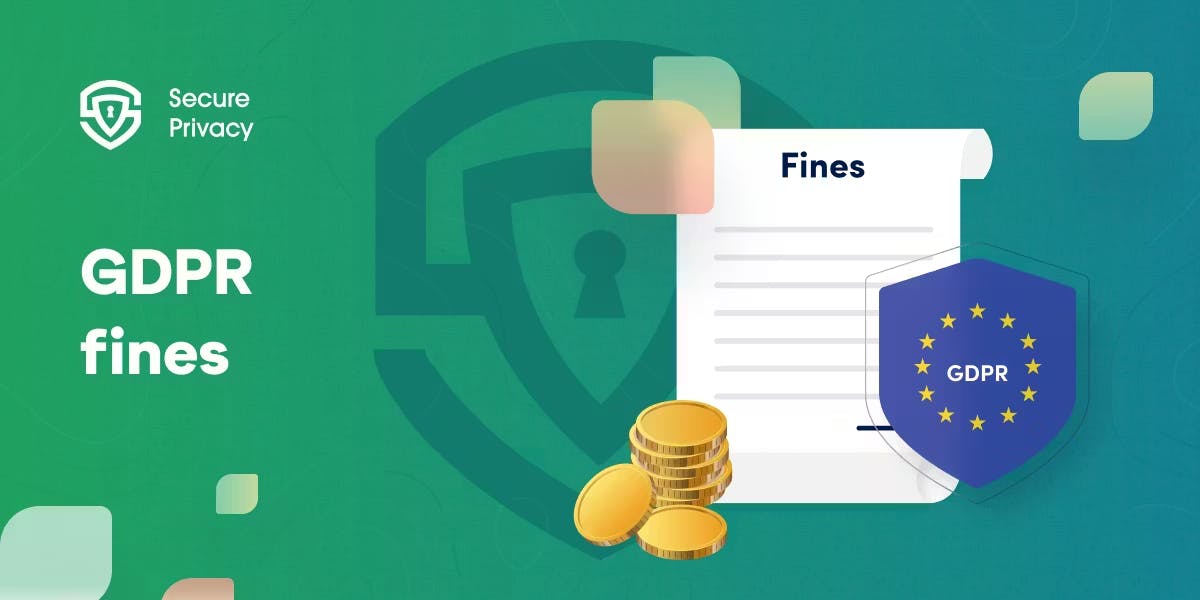Session Cookies vs Persistent Cookies: Understanding the Differences [Updated February 2024]
Explore best practices for clear policies, secure session and persistent cookies, expiration management, and data minimization. Stay ahead with insights on privacy trends, server-side storage, new alternatives, and evolving cookie technologies. Ensure a positive user experience while respecting privacy and security.
Cookies are small text files that websites use to store information on a user's computer or device. Cookies can be used for a variety of purposes, such as remembering a user's preferences, tracking their behavior on a website, and enabling personalized advertising. There are two main types of cookies: session cookies and persistent cookies.
In this article, we will explore the differences between session and persistent cookies, their advantages and disadvantages, and the best practices for using them. We will also discuss the potential privacy and security concerns associated with the use of cookies and strategies for minimizing these risks.
Cookie banner from Secure Privacy that includes persistent cookies:

Session cookies
Session cookies are temporary cookies that are deleted when a user closes their browser. They are commonly used by websites to maintain information about a user's activity on a website during a single browsing session. This information can include items such as items added to a shopping cart or website preferences.
How session cookies work
When a user visits a website, the website creates a session cookie that contains a unique identifier for that user's session. The cookie is stored on the user's device and is used to keep track of the user's activity on the website. As the user navigates the website, the cookie is updated with information such as the pages visited, items added to a shopping cart, and other preferences.
Advantages of session cookies
Session cookies are temporary and are automatically deleted when a user closes their browser. This means that they do not take up any space on the user's device.
Session cookies can be used to keep a user's information secure because they only last for the duration of a single browsing session.
Session cookies are easy to implement and do not require any special configuration.
Disadvantages of session cookies
Session cookies cannot be used to store information that needs to be accessed across multiple browsing sessions.
If a user closes their browser or their session expires, any information stored in a session cookie will be lost.
Examples of when to use session cookies
- Shopping cart functionality: Session cookies can be used to store the items that a user has added to their shopping cart during a single browsing session.
- Login credentials: Session cookies can be used to store a user's login credentials during a single browsing session. This allows the user to navigate the website without having to log in again for each page they visit.
- Form data: Session cookies can be used to store data that a user enters into a form on a website, such as a search form or a contact form. This data can be used to pre-populate the form if the user navigates away from the page and then returns to it later.
Persistent cookies
Persistent cookies are cookies that remain on a user's device even after they close their browser. They have an expiration date and can be used to store information that can be accessed across multiple browsing sessions. This information can include login credentials, language preferences, and other customized settings.
How persistent cookies work
When a user visits a website, the website creates a persistent cookie that is stored on the user's device. The cookie contains a unique identifier that is used to track the user's activity on the website across multiple browsing sessions. As the user navigates the website, the cookie is updated with information such as the user's login credentials, language preferences, and other customized settings.
Advantages of persistent cookies
Persistent cookies can be used to store information that needs to be accessed across multiple browsing sessions, such as login credentials and language preferences.
Persistent cookies can be used to track a user's behavior on a website over time, which can be used to personalize the user's experience.
Persistent cookies can be used to remember a user's preferences, such as their preferred layout or font size.
Disadvantages of persistent cookies
Persistent cookies take up space on the user's device, which can slow down their browsing experience.
Persistent cookies can be used to track a user's behavior across multiple websites, which can be seen as a privacy concern.
Persistent cookies can be used to store sensitive information, such as login credentials, which can be a security risk if the cookie is accessed by an unauthorized party.
Examples of when to use persistent cookies
- Login credentials: Persistent cookies can be used to store a user's login credentials so that they do not have to log in every time they visit a website.
- Language preferences: Persistent cookies can be used to remember a user's language preference so that the website is displayed in the correct language.
- Personalized advertising: Persistent cookies can be used to track a user's behavior on a website and across multiple websites to deliver personalized advertising.
Session cookies vs persistent cookies: which one to use?
Here's a recap of the comparison again:
| Feature | Session Cookies | Persistent Cookies |
|---|
| Lifespan | Temporary, deleted when browser closes | Persistent, remains on device after browser closes | |
| Expiration Date | No expiration date | Set expiration date by website | |
| Storage | Doesn't take up device space | Takes up device space | |
| Information Stored | Activity within a single session (shopping cart, form data) | Information across multiple sessions (login, preferences, settings) | |
| Security | More secure due to shorter lifespan | Less secure, sensitive data at risk | |
| Privacy | Less intrusive, limited tracking | More intrusive, tracks across websites | |
| Advantages | Secure, easy to implement, no space needed | Saves user time, personalization, remembers preferences | |
| Disadvantages | Limited use, data lost on session end | Privacy concerns, takes up space, security risks | |
| Examples | Shopping cart functionality, login credentials (same session), form data | Login credentials (across sessions), language preferences, personalized advertising | |
The best choice depends on your needs and priorities. If privacy is paramount, session cookies offer a lighter touch. But if convenience and personalization are key, persistent cookies might be your jam. Remember, you can often control cookie settings on websites to strike a balance between functionality and privacy.
For extra control over your online data, consider using a Consent Management Platform (CMP) like Secure Privacy CMP. It helps you manage consent for various cookies across websites, ensuring transparency and peace of mind.
Best practices for using cookies
When using cookies on a website, there are several best practices that can help ensure that they are used effectively and responsibly.
- Provide clear and concise cookie policies: Website owners should provide clear and concise cookie policies that explain what types of cookies are used on the website, how they are used, and how users can opt-out if they choose to do so.
- Use secure cookies: Website owners should use secure cookies to help protect sensitive information such as login credentials. Secure cookies are encrypted and can only be accessed through a secure connection.
- Set appropriate expiration dates: Website owners should set appropriate expiration dates for their cookies. Session cookies should only last for the duration of a single browsing session, while persistent cookies should have an expiration date that is appropriate for the information being stored.
- Minimize the amount of information stored in cookies: Website owners should only store the information that is necessary for the website to function properly. This can help minimize the risk of sensitive information being accessed by unauthorized parties.
- Allow users to opt-out: Website owners should provide users with the ability to opt-out of certain types of cookies, such as those used for advertising or tracking purposes.
- Regularly review and update cookie policies: Website owners should regularly review and update their cookie policies to ensure that they are up-to-date with the latest regulations and best practices.
By following these best practices, website owners can help ensure that their use of cookies is effective, secure, and respectful of user privacy. We also have an in-depth article on cookie consent best practices.
The future of session cookies and persistent cookies
As technology continues to evolve, the future of session cookies and persistent cookies is likely to change as well. Here are a few potential trends to keep an eye on:
- Increased emphasis on privacy: With the growing concern over online privacy, website owners may need to be more transparent about how they use cookies and provide users with more control over their data.
- Greater reliance on server-side storage: Some websites are moving away from client-side cookies and using server-side storage instead. This approach can provide greater control over user data and reduce the risk of data breaches.
- Adoption of new cookie alternatives: With the emergence of new technologies such as Web Storage and IndexedDB, website owners may begin to use these alternatives to cookies for storing user data.
- Advances in cookie technology: As technology continues to evolve, it is likely that new cookie technologies will emerge that provide even greater functionality and security.
- Changes in cookie regulations: As governments and regulatory bodies continue to update their policies on online privacy and data protection, the regulations surrounding cookies may change as well.
It is difficult to predict exactly how session cookies and persistent cookies will evolve in the future. However, website owners should stay up-to-date on emerging trends and be prepared to adapt to changes in technology and regulations. By doing so, they can continue to provide a positive user experience while also respecting user privacy and security. For more information, check out our article on Preparing for a Cookie-Free Future.
Final thoughts
Session cookies and persistent cookies are both important tools that website owners can use to improve the user experience and personalize their website. Session cookies are temporary and are used to maintain information about a user's activity during a single browsing session. Persistent cookies are stored on a user's device and can be used to store information that can be accessed across multiple browsing sessions.
While cookies can be very helpful, they can also pose a privacy risk if not used responsibly. Website owners should follow best practices such as providing clear and concise cookie policies, using secure cookies, and minimizing the amount of information stored in cookies. They should also provide users with the ability to opt-out of certain types of cookies.
Privacy tip: Take control of your online data! Choose "Accept Necessary" or similar options on websites. For even more control and compliance with privacy regulations, consider using a tool like Secure Privacy CMP. It allows you to personalize your cookie consent across websites and empowers you to make informed choices about your data. Try Secure Privacy CMP for free today and experience the difference!
Get Started For Free with the
#1 Cookie Consent Platform.
No credit card required

Cross-Device Tracking: A Complete Guide to Multi-Device User Attribution and Privacy Compliance

EU AI Act for CTOs: What Engineering Teams Must Build, Document, and Operationalize
Your product team ships a new AI-powered hiring screening feature. It ranks candidates automatically based on CV data. It is running in production across three enterprise clients in Germany, France, and the Netherlands. Nobody ran a risk classification exercise before launch. There is no technical documentation file. The logging infrastructure captures model outputs but not the decision logic. You have no human override mechanism.

GDPR Fines and Penalties Explained: Calculation, Enforcement Trends, and Risk Mitigation
Your legal team forwards you a letter from a supervisory authority. A data subject complaint has triggered a formal investigation. Your company processed personal data without a valid lawful basis six months ago — a decision made by a product manager who didn't loop in privacy counsel. Now you're looking at a potential Tier 2 fine, which means up to €20 million or 4 percent of your annual global turnover, whichever is greater. You have thirty days to respond.
- GDPR

